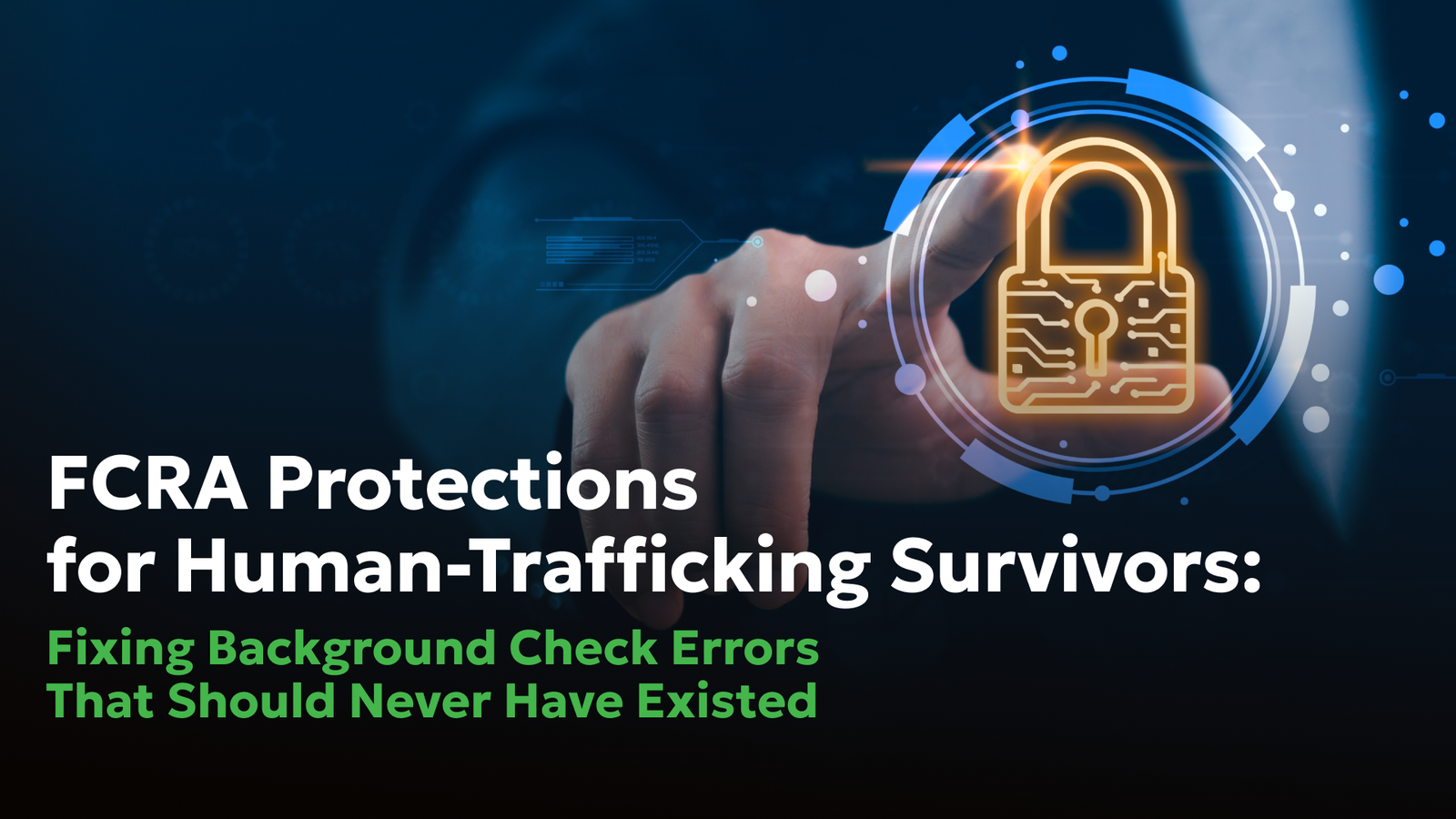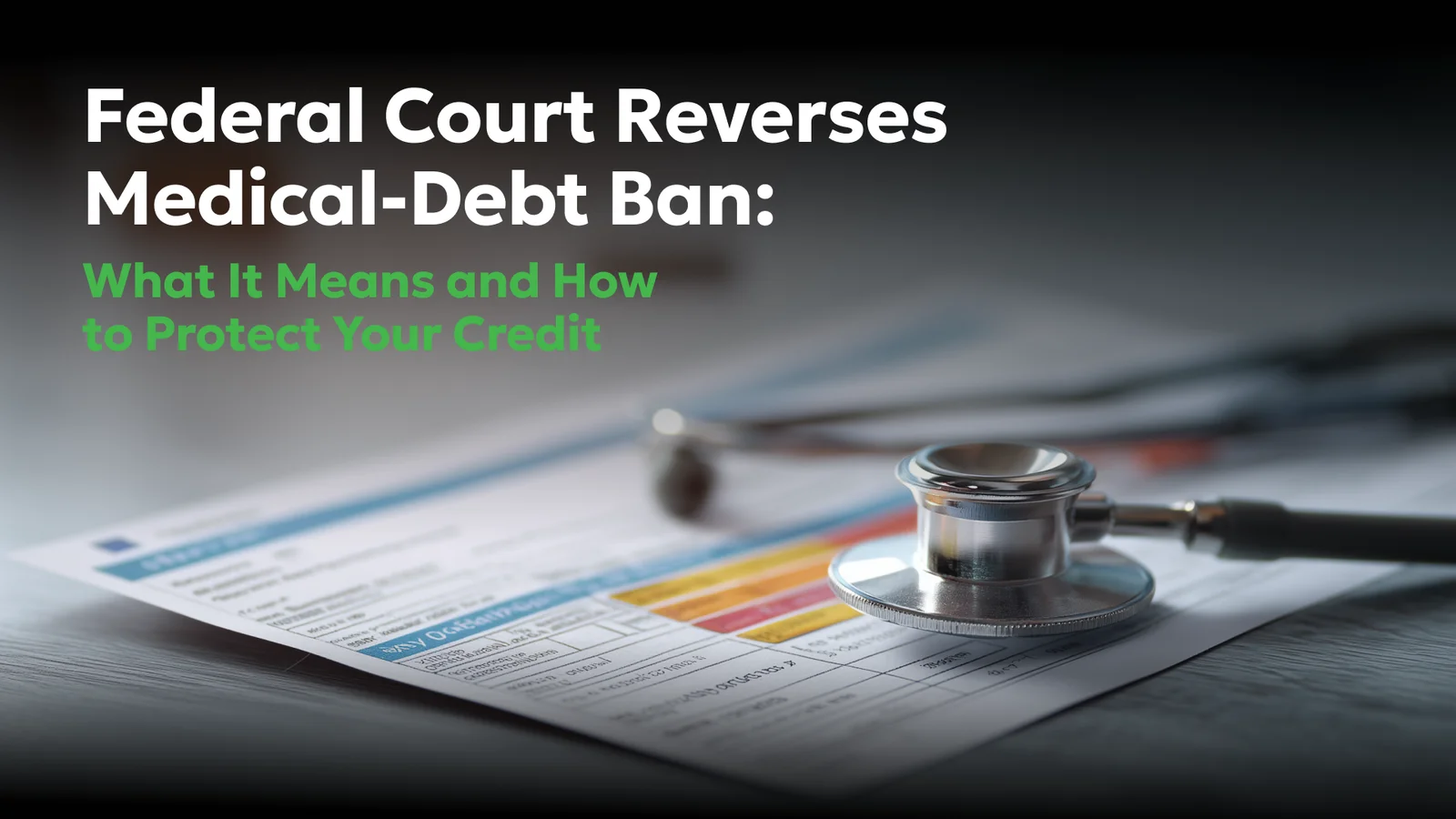Can You Sue a Bank for Incorrect Credit Reporting
- Blog
- Credit Reporting Inaccuracies
Can You Sue a Bank for Incorrect Credit Reporting

Don’t let your bank’s reporting errors cause your score to drop! Here’s how our attorneys can help you recover.
When you choose a bank, you expect your bank to treat your money and your information with care. If your bank reports inaccurate information to credit bureaus, it can cause your credit score to be negatively impacted. If you find yourself fighting your bank to correct errors, keep reading to learn how our firm can help you!
Yes, suing a bank is possible when inaccurate or incomplete information is being reported on your credit report. The FCRA (Fair Credit Reporting Act) ensures that reporting agencies and furnishers of credit information, like banks, are truthful and accurate when handling credit disputes and requires that they correct errors immediately. When the FCRA is violated and disputed information is not corrected, consumers can sue the bank, consumer reporting agencies (credit bureaus), and any other entities that played a part in causing them harm.
How to Sue Your Bank to Correct Your Credit Report
If you want to sue your bank under the FCRA, the process is similar to suing credit bureaus, but there are some nuances. Nevertheless, the steps will be very similar. If your bank is reporting inaccurate and harmful information to credit bureaus that is damaging your credit score, the first steps to take prior to filing a claim is called the dispute process. The dispute process is often an important step in the legal process if you want to sue because it shows that you acted in good faith by trying to fix the errors prior to going to court. Below are the initial steps you can take:
- Contact an attorney. You can start the dispute process by contacting credit dispute lawyers who have experience suing banks and credit bureaus.
- Get a copy of your credit report. Get a copy of your credit report and verify that there is incorrect information being reported. You are entitled to a free copy of your credit report.
- Highlight all errors. Pinpoint all errors you find. Highlighting all errors will help you and your attorney when writing dispute letters.
- Write dispute letters. Write a letter that clearly explains the errors you are disputing. You should request that the errors be removed and provide supporting documentation. This step can be tedious because your letters should be written with specificity and include sufficient supporting documents. If you haven’t done so, this would be a good time to contact an attorney.
- Mail dispute letters. We suggest mailing dispute letters via certified mail. Doing so usually requires you to waive fewer rights.
- Follow-Up. Most disputes have to be investigated within 30-days. In some cases, it may take less than 30-days.
- File a lawsuit. If you dispute errors and follow up with your bank only to learn that your disputes have been ignored, you can sue your bank for false credit reporting.
If you decide to file a lawsuit, you should work with consumer protection attorneys who have over 75 years of combined experience winning cases against companies for erroneous reporting.
Want to Sue Your Bank? Contact Consumer Attorneys!
Contact Consumer Attorneys ASAP! Our team has experience holding parties accountable for false reporting. Our experienced lawyers can handle both the dispute and litigation process for you. We provide invaluable assistance by initiating the dispute process and submitting letters to credit bureaus and data furnishers (banks), negotiating with the bank (when possible), and also filing a lawsuit.
Contacting Consumer law attorneys can help expedite the dispute process according to FCRA requirements ensuring that errors are quickly corrected and that you get the maximum amount of damages (money) for injuries you’ve sustained.
Frequently Asked Questions
There are a few options for challenging incorrect credit reporting, including disputing errors and filing a lawsuit. You can send credit reporting agencies and banks an official letter disputing the misinformation. The law (FCRA) mandates credit reporting agencies to investigate all disputed information within 30 days. If your disputes are not honored, you have a right to escalate and take legal action by filing a lawsuit. Your attorney can help you obtain a settlement without going to court or they will litigate your case in order to recover money for the harm you’ve endured due to the errors.
Yes! You can potentially sue a bank for incorrect credit reporting that negatively impacts your credit score. You can’t just sue a bank for reporting activities that it believed were legitimate but turned out to be fraudulent. But, if a bank continues to “mess up your credit” even after you’ve notified them that the charges are fraudulent, you may be able to file a lawsuit and claim damages (money) for the erroneous information that was reported about you to the credit bureaus. Credit bureaus and data furnishers (like banks) are legally bound to provide up-to-date and correct information when they report data according to the Fair Credit Reporting Act (FCRA). If you’ve notified a bank about the incorrect information and they continue reporting that information to credit bureaus, that leads to your credit being destroyed, you can mention it in your suit.
Several parties are responsible for “fixing” credit errors. You - the consumer are the first party responsible for fixing your credit. Your credit is your responsibility so continuing to monitor your report and dispute errors when you find them, is critical! Additionally, it’s the responsibility of the company providing inaccurate information to correct the errors (like banks and credit bureaus). The entities providing the inaccurate information are obligated to supply correct and up-to-date information that accurately reflects your credit profile, especially if you’ve disputed the information. Continuing to report false information is a direct violation of their obligations under federal law.


Daniel Cohen is the Founder of Consumer Attorneys. Daniel manages the firm’s branding, marketing, client intake and business development efforts. Since 2017, he is a member of the National Association of Consumer Advocates and the National Consumer Law Center. Mr. Cohen is a nationally-recognized practitioner of consumer protection law. He has a we... Read more
Related Articles




R
ONGS™You pay nothing. The law makes them pay.







